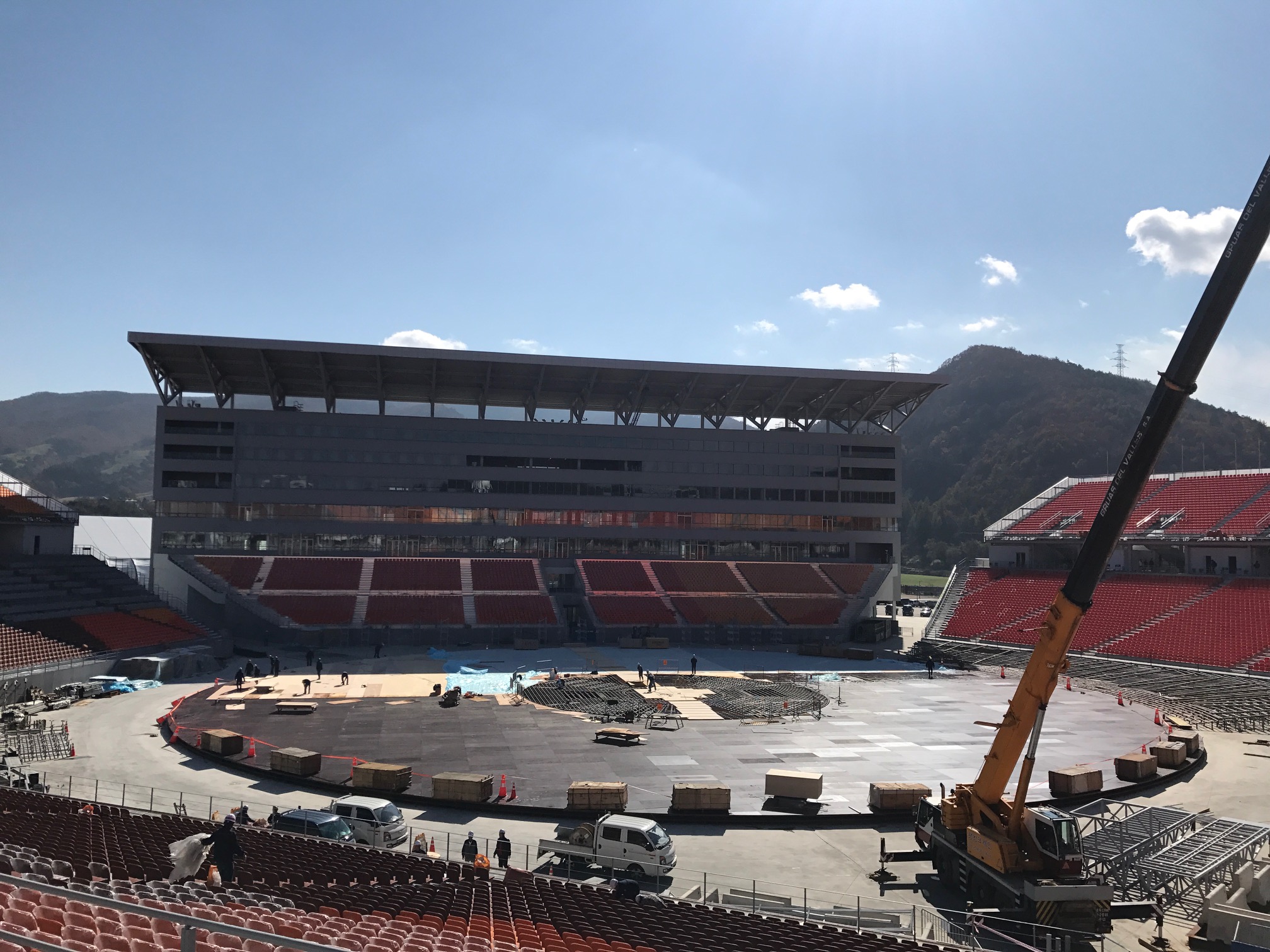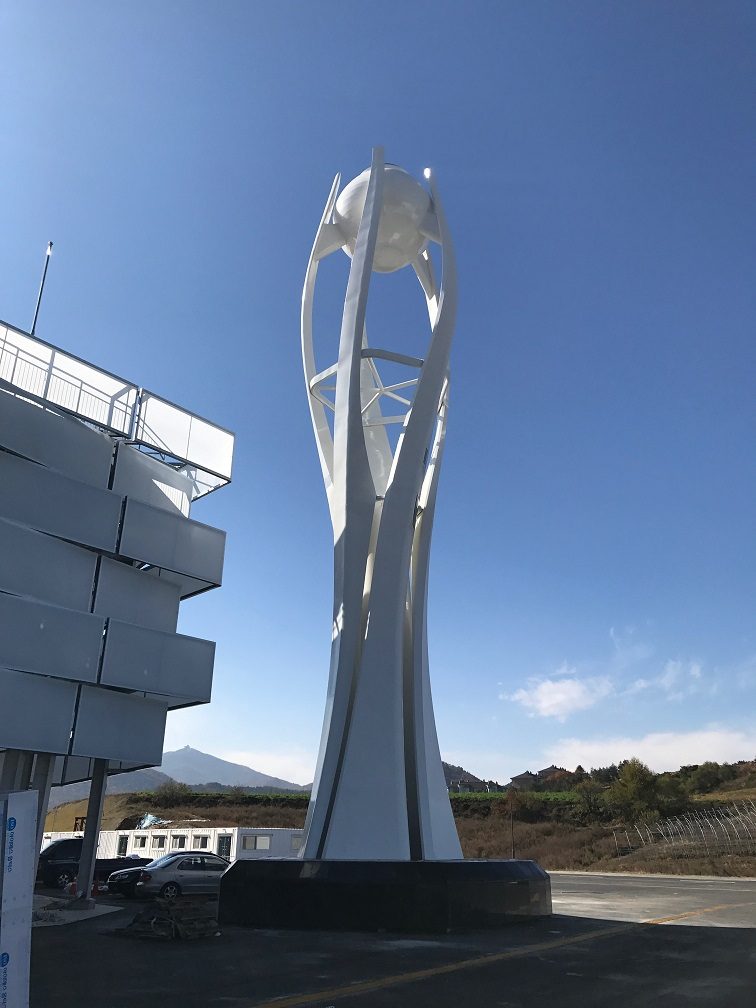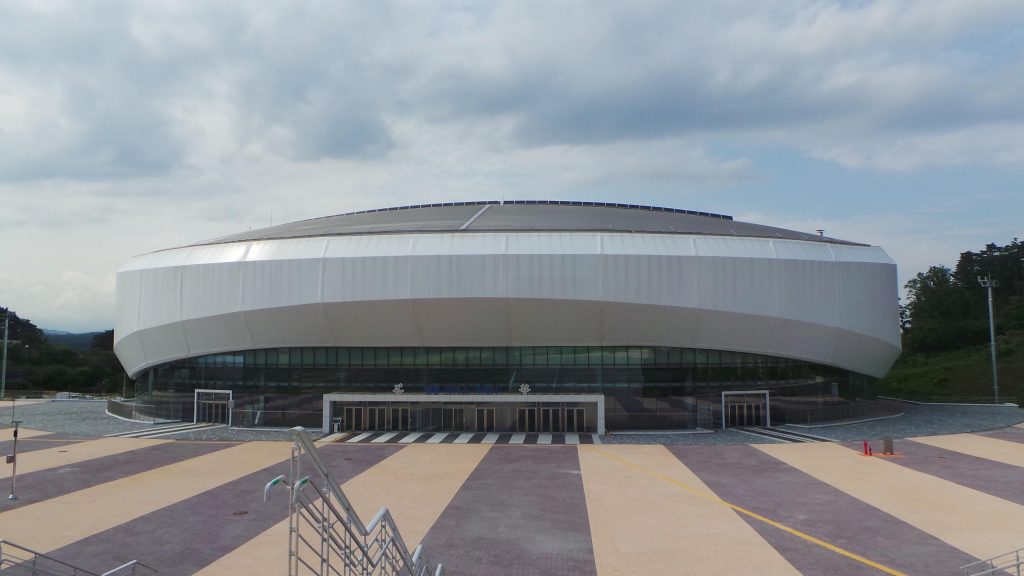- January 11, 2018
- Posted by: SportsV
- Categories: Case Studies, Event News, Features, Home News, Industry News, News, Press Releases

FOAMHAND are currently engaged by the PyeongChang 2018 Winter Olympics and Paralympic Committee to provide crowd flow modelling and management across all competition venues. In the following article, Paul Foster, COO, provides an insight into working in the fast-paced global events industry and the key factors that influence crowd modelling and planning.
FOAMHAND COO, Paul Foster, said:
As a global consultancy firm specialising in city operations and movement management for major events, FOAMHAND are currently working with the LOC for PyeongChang 2018 delivering crowd flow modelling and management across the competiton venues. There are three key factors that influence crowd modelling and planning: physical, cultural and political, as the following article will attempt to explain.
Physical
Planning for the safe movement of people is a challenge in most large single sport venues, but when 12 venues are operating simultaneously, across 15 sports, over 16 days in temperatures potentially below -10c the challenges and risk profile increases. In Olympic Games environments, crowd flow modelling and planning is not a ‘nice to have’, but ‘mission critical’ to ensuring spectators have a safe and enjoyable experience and leave with that warm, fuzzy, ‘once in a lifetime’ feeling.
PyeongChang is located in the north-east region of South Korea. The venues are split into two clusters; the mountain cluster where the snow sports will take place and the coastal cluster where the ice sports will be happening. A similar approach was taken in Vancouver in 2010 and Sochi in 2014.
With the Games not taking place in a large metropolitan city as is the case for most summer Olympic Games, transport is always going to be a challenge. When modelling and planning crowd movement operations, we always take account of the whole spectator journey and consider where on this journey are the bottlenecks. To achieve this, it is vital that a cross agency approach is taken to gain buy-in to common goals and service levels. At FOAMHAND, we use specialist online tools to enhance collaboration; and have world-class experts in crowd modelling and dynamics to support and advise local teams.

Cultural
The difference in crowd behaviour from country to country can be significant. At London 2012, tickets were snapped up within hours of being released and people were arriving 2 to 3 hours before the events to ensure they got their full Olympic experience. There were concerns before the Rio 2016 Games of slow ticket sales, but these concerns weren’t always shared locally as the cultural norm is to buy tickets on the day of events or just a few days before. Similar views are shared in Korea as they wait for the so called ‘boom’ effect.
The team at FOAMHAND have worked all over the world to support crowd management operations and recognise the importance to listen and understand the local culture and behaviours. What works in Stratford in 2012, does not guarantee the same result in Gangneung in 2018.
Knowledge and understanding of crowd modelling varies greatly from one host city to another. There is always a period of knowledge building at the start of projects. One collateral benefit of this is a greater understanding of the benefit and critical need for crowd flow planning, which goes with the people we work with, many of them who are new to the industry. Ultimately, this collective understanding and appreciation will help to drive forward service levels and make events safer for all who attend.
Political
At some point on any Olympic project there is always a ‘that can’t go there’ moment as new broadcast platforms, spectator entertainment, food concessions pop up in the worst possible location from a crowd flow point of view. Over the years of experience FOAMHAND have learnt to identify what is a genuine risk, evidence this and work with partners to provide viable alternative.
Often a location of a venue or particular structure is due to political pressure from higher up in the organisation or from a key external partner. The influencing partners and organisation are far greater in number for an Olympic Games than any other major event. An Organising Committee alone will have over 100 Functional Areas who all need to adapt to an evolving environment. One of these Functional Areas, Broadcast, plays a huge role, which is not surprising considering 75% of households worldwide tuned into London 2012 and 50% for the Sochi 2014 Games. Often the infrastructure required for Broadcast will impact on crowd flow movement. By gaining an understanding of Broadcast requirements, negotiation can often be more fruitful.

About FOAMHAND
With offices in the UK, New Zealand and Australia, FOAMHAND work with city planners and event organisers around the world to ensure a safe and enjoyable event for all, offering expert knowledge from our team’s major event experience, which is founded on the planning and delivery of over 40 global events over the last decade.
All our team have first-hand experience of event day delivery and use this valuable knowledge to support clients by providing ‘real world’ practical solutions. For an event to be successful for strategic supporters, funders and governments, a city needs to keep working. Our ‘one team, one plan’ approach to event planning considers a broad range of factors, identifies partner agencies and influential stakeholders, and engages them in the process as early as possible. FOAMHAND bring this all together in the run up to a major event with functional area engagement workshops and various readiness activities to ensure confidence is high, teams and functions are integrated, and clients receive the levels of service as planned.
This article was written by FOAMHAND and the images supplied by FOAMHAND. For further information please visit www.foamhand.com or contact the team on Tel: +44 (0) 207 205 4105, info@foamhand.com or @foam_hand

